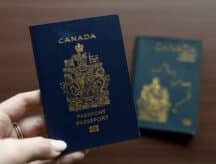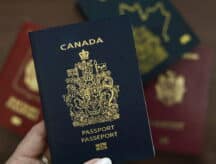What’s the difference between Canadian permanent residency and Canadian citizenship?
In Canada, permanent residents (PR) enjoy many of the same privileges as citizens, including the ability to live, work, study, and invest in the country. However, there are some distinctions that set the two apart.
A Permanent Resident is someone who has been given PR status by immigrating to Canada, but they are not a citizen. Citizens have more rights and responsibilities, including participating in the country’s democratic process (voting) and the opportunity to hold a Canadian passport. Understanding the differences between the two can help those interested in the process make informed decisions about long-term plans in Canada.
Discover if You Are Eligible for Canadian Immigration
Here are the biggest differences between Canadian permanent residency and Canadian citizenship:
Democratic participation
Permanent residents are not allowed to vote or run for political office. That means they do not have as much a say in shaping leadership and policies as citizens of Canada.
Holding certain jobs
While permanent residents are allowed to work without needing work permits in Canada, they are not allowed to take on certain jobs that require a high-level security clearance.
Status dependent upon residency
To continue to hold their permanent resident status, permanent residents must physically be present in Canada for at least 730 days over the last five years. Those days don’t need to be continuous but if they are not able to meet this criterion, they could lose their PR status.
Citizens, on the other hand, have no such restriction.
Travel privileges
Permanent residents in Canada can travel with a PR card. Many countries also offer Canadian permanent resident holders visa-free stays for short periods of time.
In contrast, Canadian citizens have access to a Canadian passport, one of the strongest passports in the world. According to Henley & Partners, Canadians can travel visa-free to 187 destinations as of 2024. There are other benefits to having a Canadian passport. Canadian passport holders can explore work and study options abroad, and even hold dual citizenship. They can also access diplomatic support from Canadian consulates while abroad.
Stability and ease of entering Canada
While rare, a Canadian permanent resident could lose their status, barring them from entering or living in the country.
This can happen if they renounce their status or if they become inadmissible to Canada (which can happen for criminal or security reasons).
However, revoking a Canadian citizenship is extremely rare and can only happen if the citizenship was obtained fraudulently or through misrepresentation in the first place.
Passing citizenship to children
If a permanent resident gives birth to a child in Canada, that child is automatically a citizen of the country. However, permanent residents who have children outside Canada do not automatically pass on their status to their child. They can apply to sponsor their child if they meet sponsorship eligibility requirements and if their child qualifies as a dependent.
Meanwhile citizenship is usually passed down to children. Canada currently has a first-generation limit (FGL) which dictates that if a Canadian citizen born outside the country has a child also born outside the country, the child is not automatically entitled to citizenship. The federal government is currently looking at amending this rule, which will give Canadians born abroad the ability to pass on their citizenship to children born abroad (although there are some conditions). The current deadline for the amendment of this rule is December 19.
Key differences between PR and citizenship
| Canadian PR | Canadian Citizen | |
|---|---|---|
| Right to vote | No | Yes |
| Right to run for office | No | Yes |
| Right to work | Yes—with exception of certain jobs requiring high-level security clearance | Yes |
| Right to open bank accounts and invest | Yes | Yes |
| Canadian passport | No | Yes |
| Right to live indefinitely in the country | Yes—with a valid PR card | Yes |
| Can travel freely | Only those countries accessible through PR card and country of nationality | Yes to all countries accessible through Canadian passport |
| Guaranteed to be able to enter Canada | No in case of inadmissibility | Yes |
| Right to pass status to children born outside the country | No | Yes, if parent is also born in Canada |
Discover if You Are Eligible for Canadian Immigration
- Do you need Canadian immigration assistance? Contact the Contact Cohen Immigration Law firm by completing our form
- Send us your feedback or your non-legal assistance questions by emailing us at media@canadavisa.com







